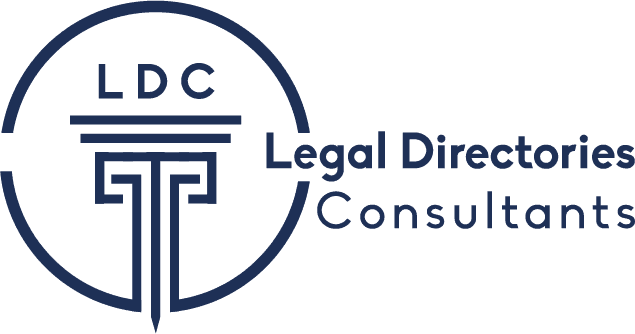May 28, 2024
How to Prepare for Interviews with Legal 500/Chambers
Preparation is Key! Find Out How to Make the Most of Your Directory Interviews

Nick Voyatzis
Founder
How to Prepare for Interviews with Legal 500/Chambers researchers
You're about to jump into an interview with a legal directory researcher, and you're wondering how to nail it. These interviews are a supplementary process, as opposed to being make or break, but can ultimately still impact your ranking and visibility in the upcoming guide.
If you're unsure of what to expect or how to prepare, this guide will help, all written from the perspective of someone who conducted hundreds, if not over 1000, of these!
1. Obtaining an Interview
Not every firm is interviewed so your best bet is to ask early! Researchers will usually draw up a list of firms they wish to speak to though will allocate a certain percentage as first come, first served.
Be sure to check The Legal 500 and Chambers research pages in the weeks following the filing of your submission. These will eventually update with the list of researchers along with contact information.
2. Interview Format
Interviews usually last between 30 to 40 minutes. Prior to Covid, these were usually telephone interviews though the new norm is a video call on Zoom/Teams. In-person meetings are also offered in the UK and researchers may also undertake research trips to Europe, parts of the Middle East, Australia and East Asia.
3. Know Your Researcher
Visit the ‘Meet the Team’ section of the Legal 500/Chambers website to learn a little more about your researcher. Bear in mind that researchers will be conducting around a handful of calls daily, if not more, so you can really stand out from the crowd by striking up a rapport with them.
I would think of these as a ‘meet and greet’, as opposed to a potential deal breaker. Many firms who get promoted are not interviewed at all, this is just a supplementary procedure, mainly to deepen the researcher’s understanding of the market/practice area, so a relaxed approach is best.
The best and most productive interviews I ever conducted felt more like conversations, as opposed to interrogations. You can crack a joke, make a bit of small talk and show some self-awareness. The key information should already been in the submission (especially if you've followed my guide on submission essentials) so you don’t need to exhaustively bombard the researcher with every piece of information you can think of.
The researcher is more likely to remember you, and in turn the points you made, if they enjoyed the conversation, some things are just human nature!
4. Anticipate the Questions
I once joined an interview a little early and overhead a lawyer claiming ‘I’ve done a dozen of these, I’ll just wing it’. This is not the recommended approach! Have a read of your submission beforehand and think on how it can help you answer the following themes, which usually form the basis of a legal directory interview:
Market Trends - The best way to answer this is a manner which shows that you are at the cutting edge of any market developments e.g. ‘naturally there’s been huge uncertainty in the energy market following the Russian invasion in Ukraine. Given the make-or-break situation, corporates are really looking for the best advice in the market and naturally turning to us as market leaders. Instructions are up 25% year-on-year’.
Provide the researcher with an idea of broader developments in the market but be sure to link this macro trend to your practice. A market leading department will be expected to be at the cutting-edge of industry-wide developments.
Introduce Your Practice – i.e. what are your core traits and points of distinction? Try to provide the researcher with tangible factual qualities that they can realistically account for, as opposed to more subjective ones. For example, ‘we’re full-service, but have a market leading presence in the tech field, as you’ll note by our representation of Google, Meta and Microsoft’ is far more helpful than ‘we’re really hard working and go above and beyond for our clients, no other firm has our levels of expertise’.
Aside from industries, are you particularly well-regarded for any specific type of work? Do you act for predominantly domestic or international clients, if the latter what are your key jurisdictions? What type of clients do you act for? e.g. investors, corporates, state bodies, developers, publicly listed companies. Do any of your individual lawyers have distinctive expertise, qualifications or accolades?
New Arrivals - If your team listed any new arrivals, specifically partners, be ready to answer a question on how they’ve improved the practice. Try and think of how they may have improved the scope of quality of your services.
Rankings Feedback – Firstly, be ready to answer questions on other firms in the market. Have a look at the current table beforehand and prepare your comments. Don’t be reluctant to say good things about other firms.
If you basically make the point that everyone is awful, but for you, everything you say from that point onwards will be taken with a pinch, or more likely a tablespoon, of salt. Whereas, if you seem fair and sincere, anything you in turn say about your own firm’s ranking will seem more grounded in reality.
If you do have negative comments on other firms, try and frame these as factual points of comparison. Comments such as ‘they don’t handle contentious work so are narrower than us’ or ‘we’ve poached quite a few partners from them so are now far bigger’ will prove far more useful than hearsay/speculation such as ‘they’re not very good, we never see them on the big transactions’.
As for your own firm, bear in mind that the main criteria are quality of work, size and experience of team, quality of client base and breadth of expertise. Addressing these points head on is the best way to go about it, though the key is to make sure you prove every point you make. You can read my guide on the key rankings criteria here.
A comment such as ‘we had 4 Supreme Court cases this year, 5 of our clients are Fortune 500 companies, and all of our disputes were valued at $5m as a minimum’ is far more helpful than ‘we do the best work, nobody has a client list like ours, we’re really confused by your rankings’.
The approach should be, you make a point, you prove it with an anecdote. Everybody interviewed will be making claims of grandeur, you can stand out by tangibly proving yours.
FYI – if I’ve worked on your submission, you’ll already have an extensive list of rankings arguments within the submission. Be sure to refer to these.
Standout Matters - Just pick one or two matters and focus why they were significant. Try not to be too fact intensive, instead try and think on how you can succinctly convey that the instruction was highly complex and indicative of a market leading level of work. Ideally, you also want to show how you added value to the matter.
Post interview, it may be a good idea to reach out to the interviewer at some point before the end of research with an update on practice developments. Research can last for months and a lot can change in that time, definitely pass on any subsequent newsworthy instructions, recognition or arrivals. Post-launch, I would also implore you to take the time to thank the researcher, especially if you are happy with the outcome. Having been on the other end, I can assure you that this goes a long way!
Feel free to email me with any questions you may have in relation to this topic.
Browse Our Resources
Submit World-Class Submissions
We support every stage of your law firm's growth. Our legal directories expertise helps ambitious firms improve their rankings and reputation.




